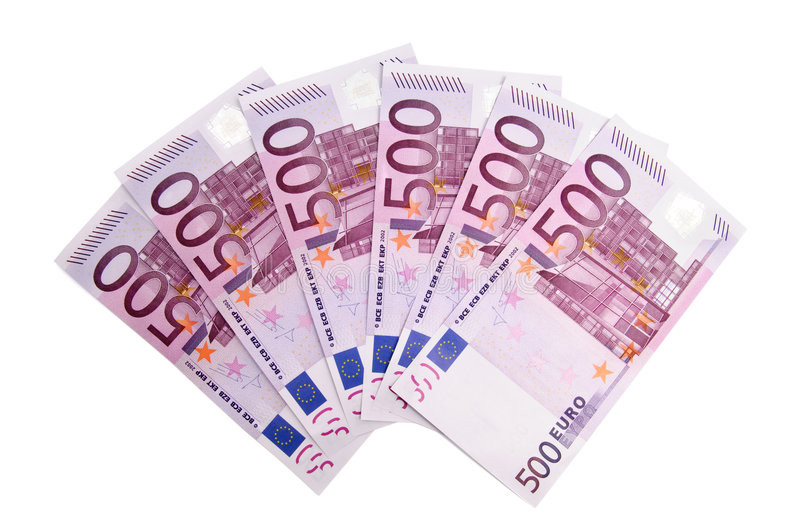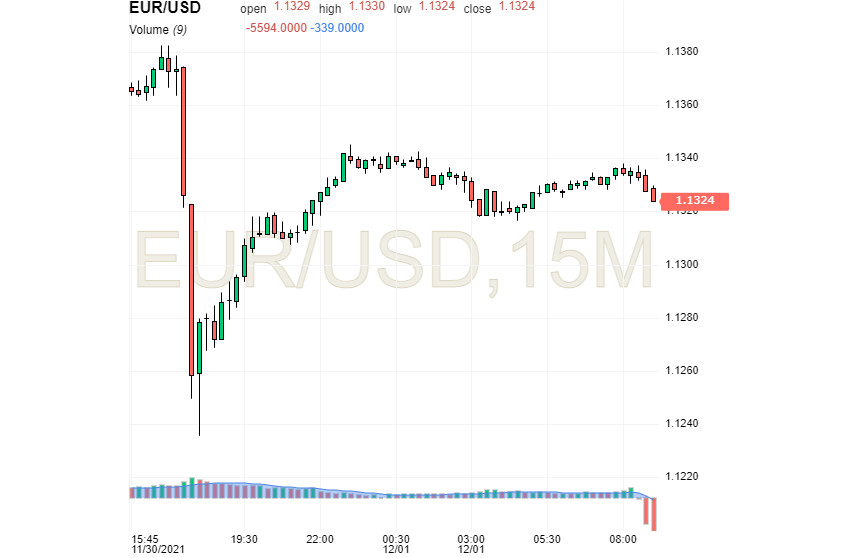
The Euro has been struggling to maintain its position for several days. The battle took place with varying success. This currency was tripped up by inflation, which reached its peak values.
Earlier, the European currency was under pressure due to the ECB's "dovish" rhetoric. It can be recalled that the regulator do not plan to curtail its asset purchase program and raise rates in the near future. However, the extremely high inflation recorded in the eurozone may make adjustments to the ECB's current plans.
According to the Eurostat report, the EU annual consumer inflation in November accelerated to an impressive 4.9%. Such a price turn shocked the markets, which will have to adapt to the new reality. The current figures exceeded experts' expectations who expected consumer prices to rise to 4.5%. Compared to the previous month, this indicator increased by 0.5%.
According to the agency, November's consumer prices in the eurozone, excluding energy, food, and alcohol, soared by 2.6% year-on-year. At the same time, the cost of energy is off the scale, rising by an impressive 27.4% (compared to 23.7% recorded in October). Prices for food, alcohol, and tobacco products increased by 2.2%, and services rose by 2.7%.
The dizzying growth in energy prices has contributed to a sharp increase in the cost of living in Europe. The widespread rise in the cost of services and products negatively affected the overall level of costs and led to problems with supply chains.
According to analysts, the rise in energy prices has led to a cosmic turn of European inflation. Last month, its growth rate became the highest in the history of the euro block. At the moment, the inflation rate is much higher than the target of 2%. This increases the pressure on the ECB, whose representatives recently declared the "temporary nature" of high inflation, justifying the reluctance to take drastic measures. However, harsh reality dictates its own conditions, which cannot be ignored.
The tense inflationary background puts pressure on the euro but does not deprive it of hope for growth. On Tuesday, the euro noticeably strengthened and gained 0.5%, reaching the level of 1.1367. Over the past three trading sessions, it has risen by 1.3%. Earlier, the single currency rose to an intraday high of 1.1373, demonstrating the largest three-day growth streak this year.
This allowed analysts to assume that the Euro currency will consolidate in the upward trend. However, a miracle did not happen: on Wednesday morning, it noticeably collapsed, although it is far from giving up. This currency is not going to give up, although its dynamics are uneven, and its further rise is questionable. On the same morning, the EUR/USD pair was near the level of 1.3334 and then slipped to the level of 1.1324. Experts said that the pair is moving around the consolidation zone after a surge in volatility.

Experts admitted the possibility of the euro's growth amid a strong reduction in the number of short positions on it. Many traders took this step after the statement of Stephane Bansel, CEO of Moderna. Earlier, the head of the pharmaceutical concern suggested that the existing anti-covid vaccines are unlikely to be effective against the new mutation of the coronavirus "Omicron". The comments of the Moderna CEO have increased the current uncertainty and tension, calling into question the speedy recovery of the global economy.
Many analysts consider the reduction of short positions on EUR to be another struggle from the new version of COVID-19. Panic is a bad adviser because it pushes traders to impulsive actions. Fearing the deterioration of the situation, market players are trying to get at least some profit, but these actions do not always lead to the desired result. Currently, traders hurried to reduce large positions opened in the expectation of an increase in interest rates from the Fed. Market participants believe that the US regulator will do this faster than its European counterpart. The calculation turned out to be correct. It remains to be hoped that in the current conditions, the ECB will reconsider its previous strategy and follow the Fed.
It can be recalled that Fed chairman Jerome Powell announced the regulator's readiness to accelerate the pace of curtailing asset purchases and raise rates in the near future. The catalyst for this decision was the off-scale inflation rate, which the head of the Federal Reserve drew attention to. He is confident that extremely high inflation justifies the accelerated curtailment of bond purchases. The final decision will be made at the December meeting scheduled for December 14-15.
If this measure is implemented (while reducing the volume of bond purchases by $30 billion per month), the incentive program will end in March 2022. This will provide the central bank with room for maneuver regarding a potential rise in interest rates. It is possible that the European regulator will follow his example, and this will have a positive impact on the eurozone economy and the euro's dynamics.
 English
English 
 Русский
Русский Bahasa Indonesia
Bahasa Indonesia Bahasa Malay
Bahasa Malay ไทย
ไทย Español
Español Deutsch
Deutsch Български
Български Français
Français Tiếng Việt
Tiếng Việt 中文
中文 বাংলা
বাংলা हिन्दी
हिन्दी Čeština
Čeština Українська
Українська Română
Română

